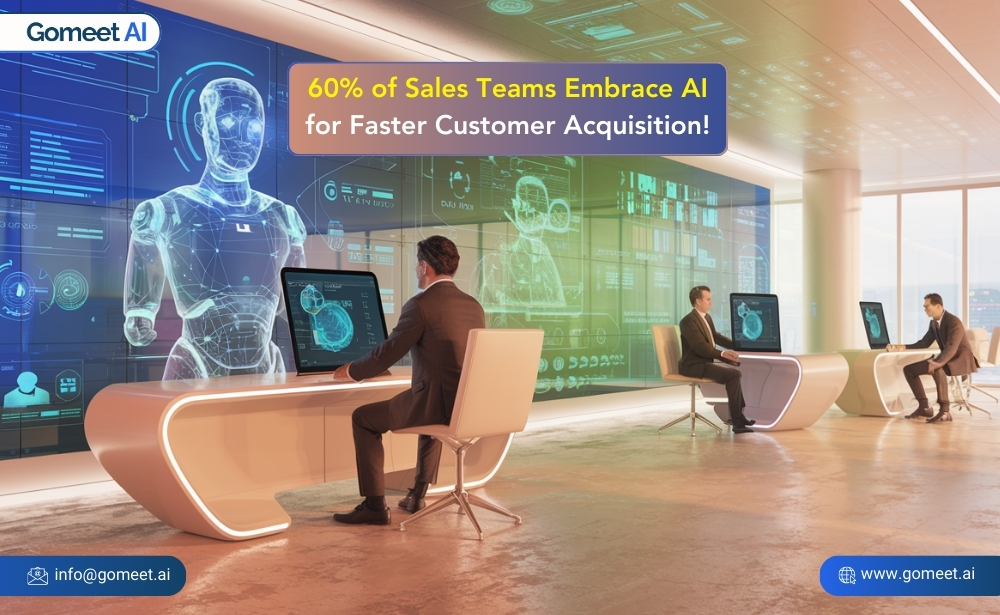In today’s rapidly evolving digital world, Sales Automation is no longer optional for SaaS companies—it’s the secret weapon for success. As the pressure for scalable, efficient customer acquisition mounts, SaaS companies are turning to AI-powered sales automation to revolutionize their processes. With the power of data-driven insights, predictive analytics, and streamlined workflows, AI is changing the game for lead engagement and conversion.
By 2025, AI adoption in sales is projected to skyrocket, with tools like AI sales assistants and B2B prospecting software leading the charge and giving SaaS companies a serious competitive edge. Over 60% of sales teams are expected to integrate AI-driven automation by then, transforming SaaS sales with precision, personalization, and unmatched efficiency. Let’s dive into why Sales Automation is set to reshape the SaaS landscape in 2025 and uncover the tools and trends that will drive the industry forward.
The Growing Need for Sales Automation in SaaS
Traditional SaaS sales processes are riddled with challenges: lengthy sales cycles, repetitive manual tasks, and inefficient lead nurturing. These roadblocks slow down acquisition and drain valuable resources. Sales automation addresses these pain points by automating repetitive tasks, streamlining lead qualification, and delivering real-time insights to the sales team.
Statistics show that companies using sales automation can reduce their sales cycles by up to 20% and improve conversion rates by as much as 30%. With these improvements, SaaS companies can scale their customer acquisition efforts, reduce time-to-close, and boost overall efficiency. As the demand for SaaS products grows, sales automation will become the foundation of scalable, sustainable growth.
What is Sales Automation?
Sales Automation refers to using technology to automate repetitive, time-consuming tasks in the sales process, including lead generation, scoring, outreach, and follow-ups. Traditional sales automation tools help manage workflows, but AI-powered sales automation takes it further by incorporating predictive analytics, customer behavior insights, and hyper-personalized outreach capabilities.
By leveraging advanced AI, sales teams can predict customer needs, personalize interactions, and optimize sales strategies. In 2025, AI-driven sales automation will become essential for SaaS companies, enabling them to navigate complex customer journeys and drive engagement with precision.
Key AI-Powered Tools Transforming Sales Automation for SaaS in 2025
1. AI Sales Assistant
- AI sales assistants are revolutionizing SaaS sales by managing routine tasks, answering customer queries, scheduling meetings, and providing data-backed recommendations.
- For example, an AI assistant can automatically send follow-up emails based on customer behavior, freeing sales reps to focus on high-value interactions. With real-time insights, AI sales assistants enable sales teams to make informed decisions faster.
2. B2B Prospecting Software
- AI-driven B2B prospecting software optimizes lead generation by identifying and prioritizing leads with a higher likelihood of conversion. Using data from social media, CRMs, and past purchases, these tools find and qualify leads more accurately than traditional methods.
- For instance, a SaaS company can use B2B prospecting software to target specific industries or roles, ensuring that its outreach is focused on high-potential prospects.
3. Sales Lead Automation
- Sales lead automation tools leverage AI to score and nurture leads based on insights, automatically segmenting them for targeted outreach. This personalization ensures that each lead receives the right message at the right time.
- An example of this is a lead automation software that customizes the timing and content of outreach based on a lead’s previous engagement, maximizing the chances of conversion.
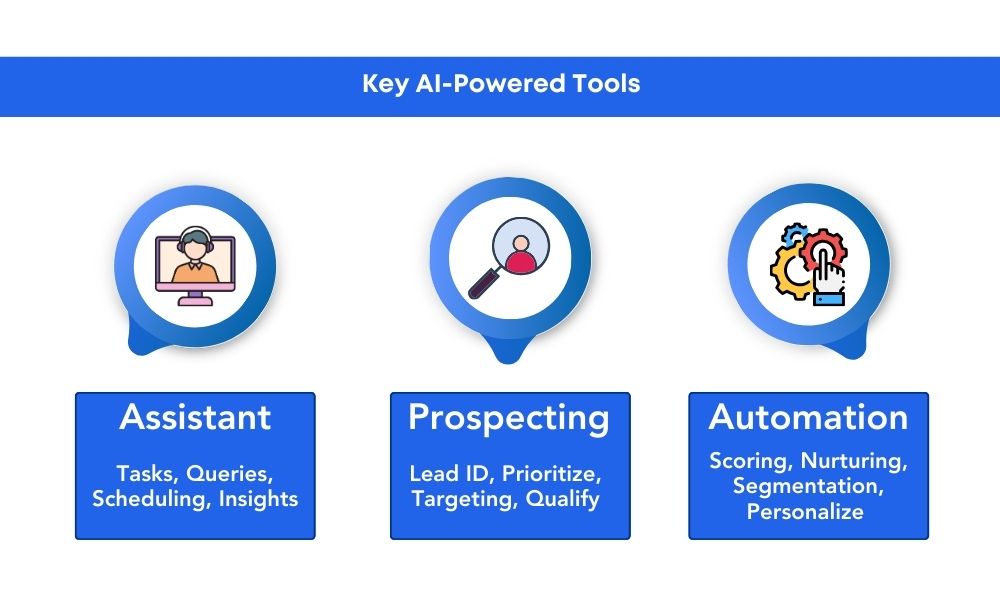
Benefits of Sales Automation for SaaS Businesses
- Increased Sales Efficiency
- By automating repetitive tasks, sales automation allows sales teams to focus on strategy, relationship-building, and high-priority leads. Research shows that companies using sales automation report a 30% improvement in productivity, leading to faster sales cycles and more closed deals.
- Enhanced Lead Qualification and Scoring
- AI-powered lead scoring helps prioritize leads based on their potential value, allowing sales reps to focus on high-quality leads. This targeted approach results in more meaningful interactions and a higher conversion rate.
- Personalized Customer Engagement
- AI-driven tools tailor outreach based on customer preferences and behaviors, creating a relevant and engaging customer journey. Personalized interactions can boost engagement by up to 40%, significantly increasing the likelihood of conversion.
- Data-Driven Insights for Decision-Making
- Sales automation provides real-time data on customer interactions and behaviors, enabling SaaS companies to make informed, data-backed decisions. By analyzing patterns, sales teams can refine their strategies to meet customer needs more effectively.
- Cost Savings and ROI
- Automation reduces the need for a large sales team, improving cost efficiency and delivering a strong ROI. SaaS companies using sales automation report an average cost reduction of 10-15% while maximizing revenue through increased conversions.
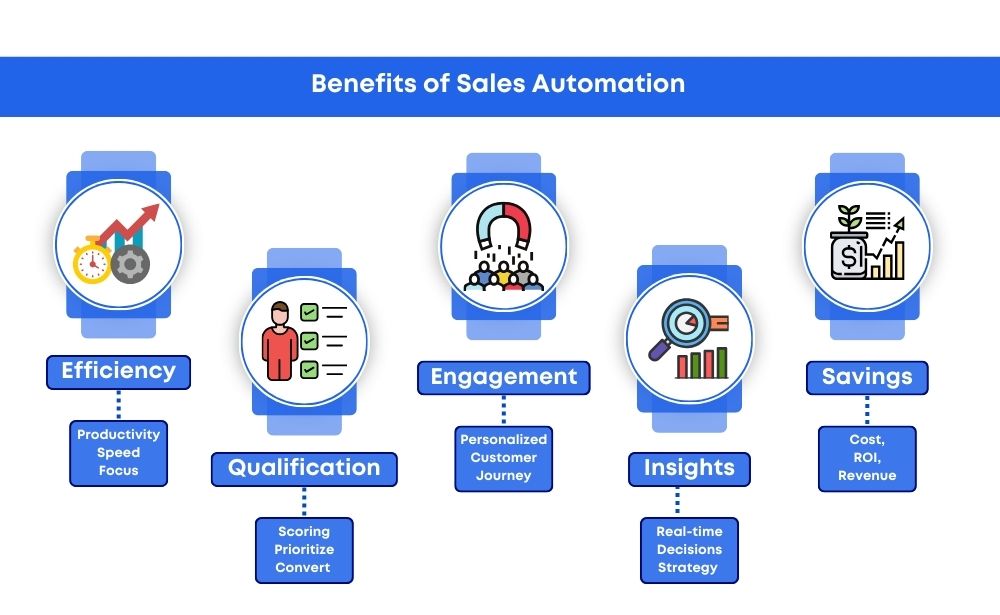
Top Use Cases of AI-Powered Sales Automation in SaaS
- Automated Lead Generation
- AI-driven B2B prospecting software identifies and qualifies leads based on specific criteria, helping SaaS companies target the right prospects faster. Automated lead generation streamlines outreach efforts, improving conversion rates.
- Customer Segmentation and Personalization
- AI tools segment customers based on behavior, industry, and preferences, enabling targeted outreach that resonates with each segment. This targeted approach fosters stronger connections and improves engagement.
- Follow-Up and Lead Nurturing
- AI sales assistants manage timely follow-ups and nurture leads over time, ensuring no opportunity is missed. This consistent engagement builds trust and keeps leads warm until they’re ready to convert.
- Predictive Analytics for Sales Forecasting
- AI-powered predictive models analyze past data to forecast future sales, helping SaaS companies optimize strategies and improve planning accuracy. Forecasting tools allow businesses to prepare for demand fluctuations and allocate resources more efficiently.
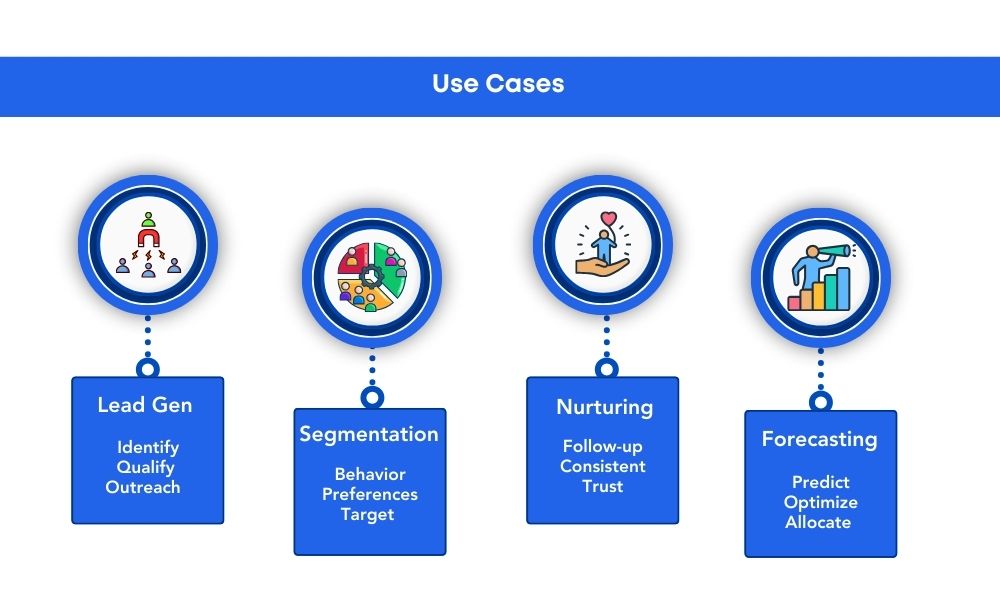
Future Trends in Sales Automation for SaaS in 2025
- Advanced Machine Learning for Deeper Insights
- Evolving machine learning models will offer more accurate insights into customer behavior, enabling SaaS companies to predict needs and personalize interactions with unprecedented accuracy.
- Voice and Conversational AI in Sales
- AI-driven chatbots and voice assistants will increasingly handle customer interactions, enhancing response times and providing immediate answers to customer queries, which can improve lead engagement by 20%.
- Hyper-Personalization with Real-Time Data
- Hyper-personalization, driven by real-time data, will enable SaaS companies to deliver tailored recommendations, content, and offers, increasing conversion rates.
- Integration with CRMs and Other Sales Tools
- Seamless integration between sales lead automation tools, CRMs, and communication platforms will create a cohesive sales ecosystem, boosting productivity and improving data flow.
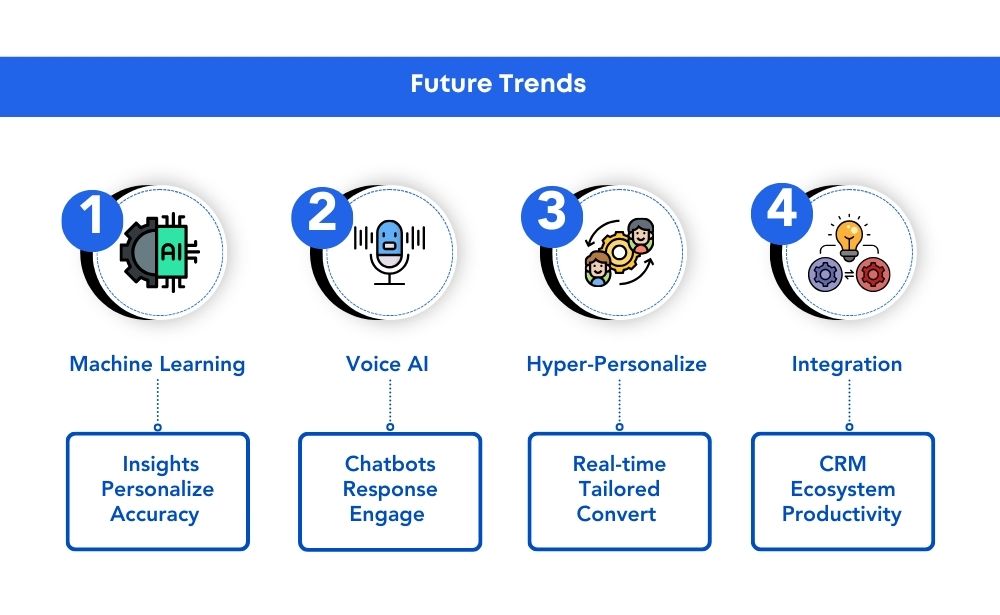
How to Choose the Right Sales Automation Tool for SaaS
- Scalability: Ensure the tool can grow with the company’s needs and handle increasing customer data and engagement demands.
- Ease of Integration: Look for software that integrates with existing tools, such as CRMs and communication platforms.
- Personalization Capabilities: Prioritize tools with AI-driven personalization features for a tailored customer experience.
- Analytics and Reporting: Choose platforms with robust reporting features to track performance and gain actionable insights.
- User-Friendly Interface: Select tools that are easy to use for quick onboarding and adoption by the sales team.
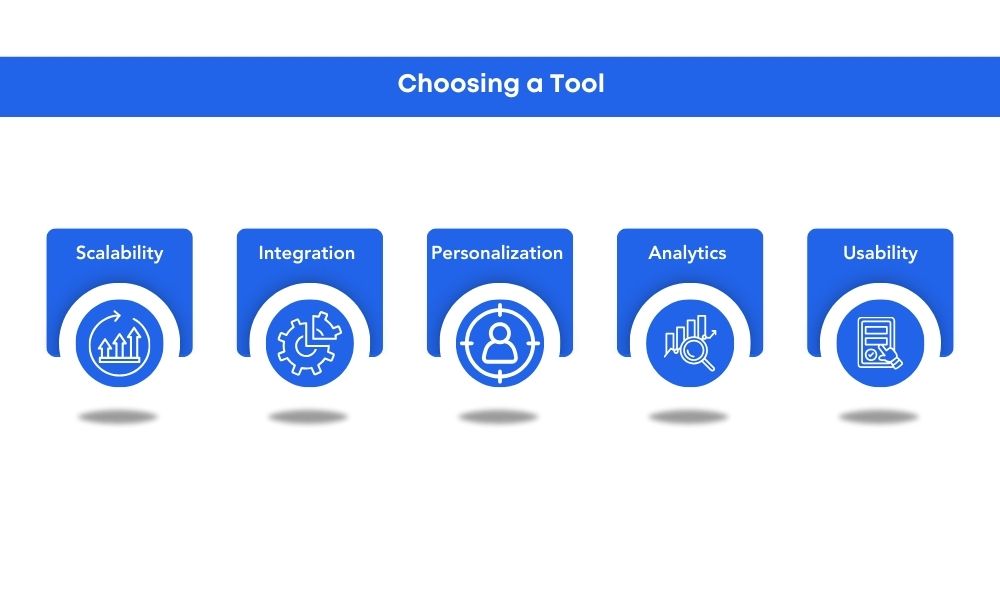
Conclusion
In 2025, sales automation will be a game-changer for SaaS companies, streamlining customer acquisition and enabling growth at scale. With the advancements in AI sales assistants, B2B prospecting software, and sales lead automation tools, SaaS businesses can transform their sales strategies to be more efficient, personalized, and data-driven. By embracing these tools, SaaS companies can future-proof their sales processes, strengthen customer relationships, and stay ahead in a competitive landscape. Embrace sales automation now to secure a bright future in SaaS.

